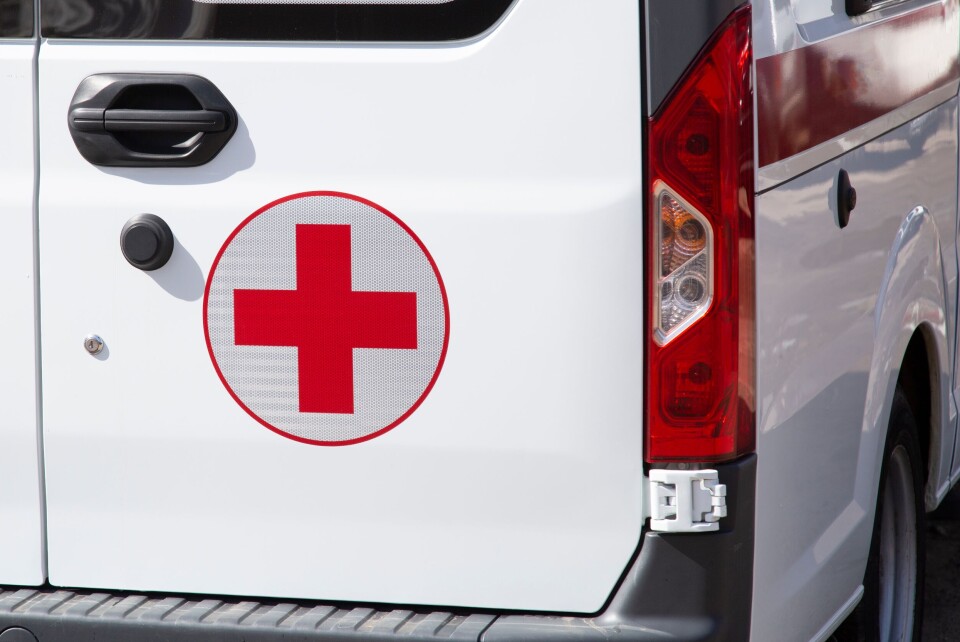-
White storks make strong return in France via nest ‘platforms’ and clipped wings
The Ligue pour la Protection des Oiseaux shares the conservation challenges in saving these birds from extinction
-
Hosting scheme in south-west France lets newcomers sample lifestyle
Households in nine Dordogne communes volunteer under Mes Nouveaux Voisins scheme
-
French boulangeries demand right for staff to work on May 1 so they can open
Artisan bakery owners can work but employees cannot, while certain industrial bakeries are allowed to remain open with workers
French villages fight doctor shortage with medical bus
The medical bus visits one of eight participating communes and is aimed at fighting the area’s problem of ‘medical deserts’

A group of villages in northern France has launched a mobile medical bus in a bid to solve the growing issue of ‘medical deserts’ and GP shortages.
Communes in Evreux (Eure, Normandy) have joined together to launch the Doctobus at a cost of €70,000. Inside the campervan-style bus is everything needed to carry out GP appointments (even if it is not quite tall enough to allow people to stand up inside).
The bus is modelled on another similar scheme, the Médicobus, in Orne (also in Normandy).
Three times a week (for now), the bus drives to one of eight communes and stays there for the day (except on Wednesdays, when it currently does a half-day). Doctors will see between seven to 15 patients on the bus per day.
From June, the bus will operate five days a week.
Médecine itinérante : un #Doctobus va sillonner les routes de l’Eure, avec cinq généralistes retraités à son bord. https://t.co/F0PphKpL3X
— Le Quotidien du Médecin (@leQdM) March 21, 2023
It is staffed by retired GPs who want to help. One, Dr Olivier Cirilli, is aged 72, and came out of retirement to help with the project.
He told France 3: “When I found out that there was a shortage of doctors in the region, and they asked me if I could help to fill in a bit, I said yes. Thanks to my love for the job, and keeping in contact with the public, which I enjoy enormously, we can move mountains.”
He said the bus has already hosted many patients, and that “in a few months, I think we will even be overbooked”, he said.
“Doctors are retiring and not being replaced. No-one is here, so I think we’ve been welcomed with open arms. We feel that people have been waiting for us to arrive,” he added.
‘Easy and quick’
One user, Brigitte, said that she had tested the bus after her usual GP retired in December last year. She has an ongoing heart condition, so it has been difficult to find a new doctor, she said.
She told France 3: “Since January, I have been trying to find a new GP, but they’re not taking on new patients.
“I liked the idea of the bus, and I think it’s also good for older people who have trouble getting around. I called the number and I spoke to the receptionist, who said that she would call me back within the hour. They then called and offered me an appointment for 48 hours later.
“It was very easy and quick.”
Another patient, Aurélie, said that the bus was the only way that she could see a GP, even though she still has to drive for half an hour to get to the bus.
She said: “In our commune, we no longer have a doctor at all, so even though we have to drive for 30 minutes, sadly we don’t have a choice if we want to get care.”
Aurélie said that she had had a good experience with the bus, and said: “There should be more of them.”
‘Lack of doctors’
Emmanuel Roussel, community manager for health in the area, said there is a “clear lack of doctors in the sector”.
He said: “[the Doctobus] is better than nothing. But we hope that in a few years, we will no longer need the Doctobus if the situation has improved and several doctors have opened up here. But as long as there is a medical need, the Doctobus will operate.”
Mr Roussel added that he hoped more doctors would be attracted to the bus. He said: “It might encourage young doctors to come and help ensure continued access to care.”
Read more: French ‘medical deserts’: Mayor’s plea over lack of rural GPs
How can I get an appointment if I am in the area?
You must live within driving distance of the bus’s eight communes of coverage: Arnières-sur-Iton, Bois-le-Roi, Fresney, Gauciel, Marcilly-la-Campagne, Prey, Reuilly et Sacquenville.
Appointments must be made over the phone on 02 32 31 52 93. Slots are currently available on Mondays, Tuesdays, and Fridays from 08:00 to 18:00, and on Wednesday mornings from 08:00 to 12:30.
Medical deserts
The term ‘medical deserts’ is becoming more widely-used in France amid increased shortages of healthcare professionals.
A medical desert is an area in which patients have trouble seeing a GP regularly, whether because they cannot get an appointment, there are not enough doctors, or because they live too far away from their nearest GP surgery.
The government defines the term specifically as an area in which patients have access to fewer than 2.5 consultations with a local GP per year on average.
The term can also be used to describe areas in which there are not enough GPs so patient time is very stretched. In this case, even patients who do get an appointment may find they do not have enough time to properly explain their problem and the GP does not have enough time to offer them a good level of care.
Related articles
My experience of ‘medical deserts’ in rural France
Eight facts to understand France’s issue of ‘medical deserts’
How can I find out which parts of France are lacking doctors?
























